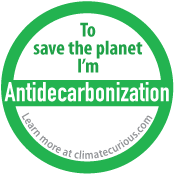We have all heard the cries of doom.
The oceans are going to rise and destroy mankind! The animals that we are used to in our local environment are all going to die. The tornados will cause mass destruction. Hurricanes will destroy our coastlines.
These have been going on for a LONG TIME now.
One of the biggest fear mongers was Jim Hansen. In 1988, he was looking out on Broadway in New York City and observing the Hudson River. Here is his prediction as remembered by the reporter beside him:
I went over to the window with him and looked out on Broadway in New York City and said, “If what you’re saying about the greenhouse effect is true, is anything going to look different down there in 20 years?” He looked for a while and was quiet and didn’t say anything for a couple seconds. Then he said, “Well, there will be more traffic.” I, of course, didn’t think he heard the question right. Then he explained, “The West Side Highway [which runs along the Hudson River] will be under water. And there will be tape across the windows across the street because of high winds. And the same birds won’t be there. The trees in the median strip will change.” Then he said, “There will be more police cars.” Why? “Well, you know what happens to crime when the heat goes up.”
I took a look at some pictures on Google since I don’t live in NYC. I found some that are approximately the same view as Mr. Hansen. I couldn’t find any comparisons of birds in the area, so I need one of my birding friends to tell me if the birds are significantly different.
Also, I couldn’t tell if the trees were different without before and after images. I could tell that some of those trees look like they are over 50 years old. I don’t see many that are younger than 20, so my guess is that he has that wrong. My gut is that the trees that he was looking at 26 years ago are basically the same trees there now. I would also bet that some of the trees are exactly the same – just 26 years older.
I definitely see roads without water, and it doesn’t look like dikes have been built to keep them dry. So much for the oceans rising and covering the land.
They must have really fancy invisible tape these days because I don’t see any on the windows. A quick check of the weather in NYC leads me to believe that the wind isn’t much harder than 26 years ago.
That is the unfortunate thing about predictions. It is way too easy to find them again and compare them to the date of the prediction. Looks like this prediction is a bust. I wonder if Myth Busters should declare the predictions of 1988 by Jim Hansen BUSTED.
Here is the quote from the article that references this conversation approximately 26 years ago: http://www.salon.com/2001/10/23/weather/
Here are the comparison images that I referenced. I found them by going to Google Maps and it found images at the approximate location that appears to be described in the quote. I do not own the copyright to these images, so if the copyright holder wants me to take them down, I will.


I guess Mr. Hansen is still saying the world is going to end. He says that he isn’t wrong, this time.
In case you don’t recognize the cartoon below, it is Chicken Little.






